MSPs to debate gender identity questions for next census
- Published
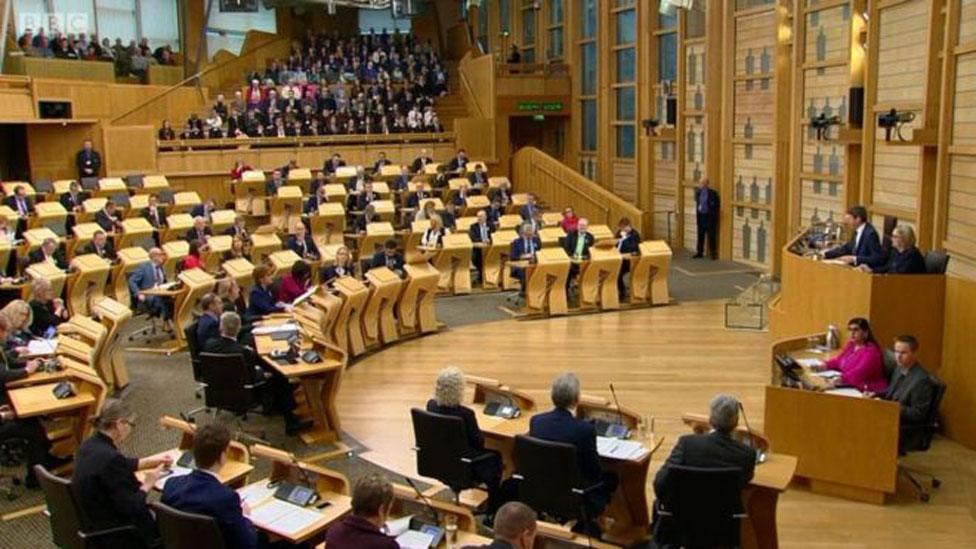
MSPs are to debate legislation allowing for questions about gender identity to be included in the next census.
The next census is due in 2021, and ministers want to gather extra details about sexual orientation and identity.
MSPs are examining legislation allowing voluntary questions to be included, although there has been disagreement over what people should be asked.
Holyrood's culture committee has raised concerns that the way the bill is worded could cause "confusion".
So what will the bill actually do, and what has the debate been around it?

What's this all about?
The government wants to gather extra data about sexual orientation and identity, to better inform thinking and policy about different communities and groups.
The census is the most comprehensive source of demographic data available to the government, and because the surveys are held every 10 years, changes to the questions often reflect shifting social attitudes.
There was talk of including questions on sexual orientation in the 2011 census, but the government's policy memorandum claims that "the level of public acceptance of the question was not considered sufficient" at that time.
Since then, ministers say research and consultation has identified a "need for data on sexual orientation and gender identity, especially transgender status and history".
When talking about "trans" people, the National Records of Scotland - which conducts the census - defines it as being "an umbrella term for anyone whose gender expression does not fully correspond with the sex they were assigned with at birth".
The Census (Amendment) (Scotland) Bill was put forward to open the door to questions on these topics.

What does the bill do?
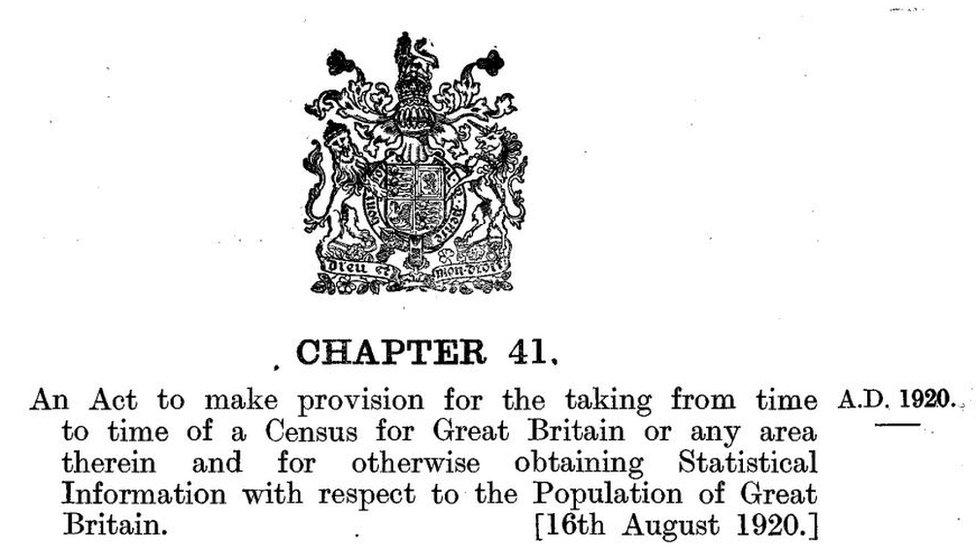
The census is still underpinned by legislation dating back to 1920
The legislation underpinning the census was penned in 1920, providing for questions about topics including age, sex, occupation, nationality and race. At present, only questions about religion are voluntary.
Extra topics are frequently added - for example in 2011 five new questions featured, including on national identity and long-term health conditions - but legislation is needed if they are to be posed on a voluntary basis.
This is what the current bill is for. It is a pretty basic bill, simply providing for the possibility of these questions - the detail of what would actually be asked would be decided at a later date.
However, this was still the basis for much of the debate when the culture committee was taking evidence.
So while the legislation is about voluntary questions, it has sparked a wider debate about what exactly people could be asked in the 2021 census.

So what could the questions be?
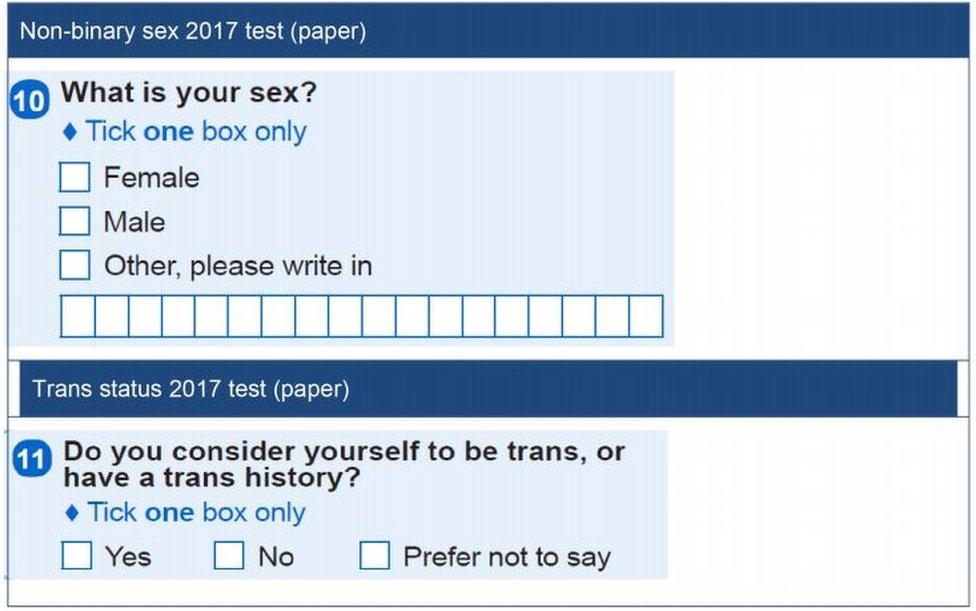
The National Records of Scotland has been testing possible census questions
There is a big debate over the mandatory "sex question", which currently asks if the respondent is male or female.
National Records of Scotland suggested that the sex question for 2021 should "provide non-binary options" - although they stressed that it "will not seek a declaration of biological or legal sex".
So the options on the census paper could be "male", "female", or "other", with a box for people to write in.
When questioned by the committee, head of census statistics Amy Wilson told MSPs that the actual data output would still be "on a male and female basis" - so they would "randomly assign people back into the male and female categories" if they ticked the "other" box.
This led Culture Secretary Fiona Hyslop to ask: "If we are not going to use non-binary data as non-binary data and are just going to use binary information, why ask the question in the first place?"
Another possibility would be to retain the male/female sex question, but follow it with a voluntary one asking whether people think of their gender identity as "man", "woman" or "in another way, please write in".
Testing has also been carried out on a question asking "do you consider yourself to be transgender, or have a transgender history", with "yes", "no" and "prefer not to say" answers.
The committee heard a range of "sincere and strongly held views" about whether the mandatory sex question should be binary - male or female - or include other options.
However, a majority of members said that it should remain binary "in order to maximise response rates" and provide "consistency with previous censuses".
Green MSP Ross Greer voted against this point, while two members abstained in the division.
The Scottish Trans Alliance voiced disappointment with the move, saying it meant that "once again, non-binary people will not be able to answer the question honestly and accurately".

Are there other concerns about the bill?
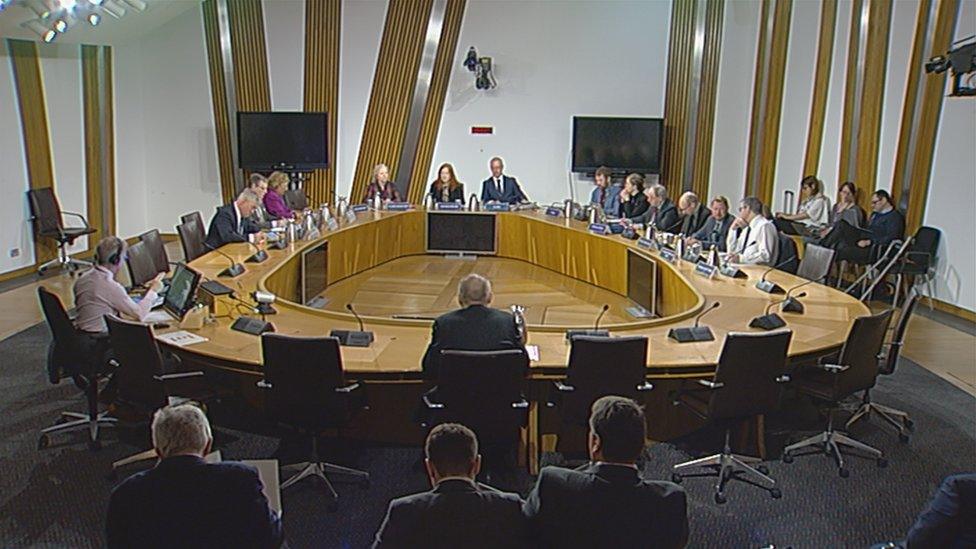
Holyrood's culture committee has flagged up several concerns with the bill
While the culture committee recommended that MSPs back the general principles of the bill, members were strongly critical of the way it has been drafted.
Convener Joan McAlpine said the way the legislation was worded had "created confusion and a perception that the bill conflates issues around sex and gender identity".
She also said there had been "a serious lack of consultation with a range of women's groups, which has led to legislation being published which is not fit for purpose".
A National Records of Scotland spokeswoman said: "We welcome the committee's thorough consideration and support for the general principles of the Census Bill, and will consider their recommendations carefully.
"The intention behind the Census Bill has never been to conflate sex and gender identity and we will consider the issues raised in the report.
"We are committed to an ongoing programme of engagement and are currently working closely with stakeholders, including women's groups, LGBT organisations and others, as the specific questions for Census 2021 are developed."

What happens next?
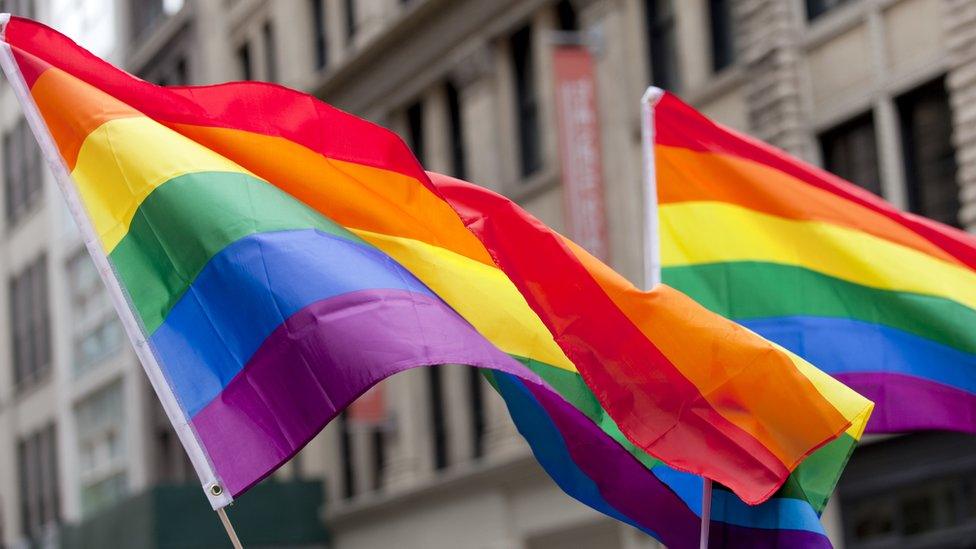
MSPs hold their stage one debate on the bill in the Holyrood chamber on Thursday.
Members from all parties signed up to the culture committee's recommendation that the general principles be agreed, so it is likely the bill will pass this first parliamentary hurdle.
It will then return to committee stage for amendments - and the committee has already demanded several.
Once changes have been made, the bill will then return to the chamber for a final vote of MSPs, sometime later in 2019.
As noted above, passing the bill will not settle the matter of the actual census questions - that issue will come back before MSPs as secondary legislation closer to the census in 2021.
The National Records of Scotland is carrying out further testing of possible questions, and consultations are set to continue.